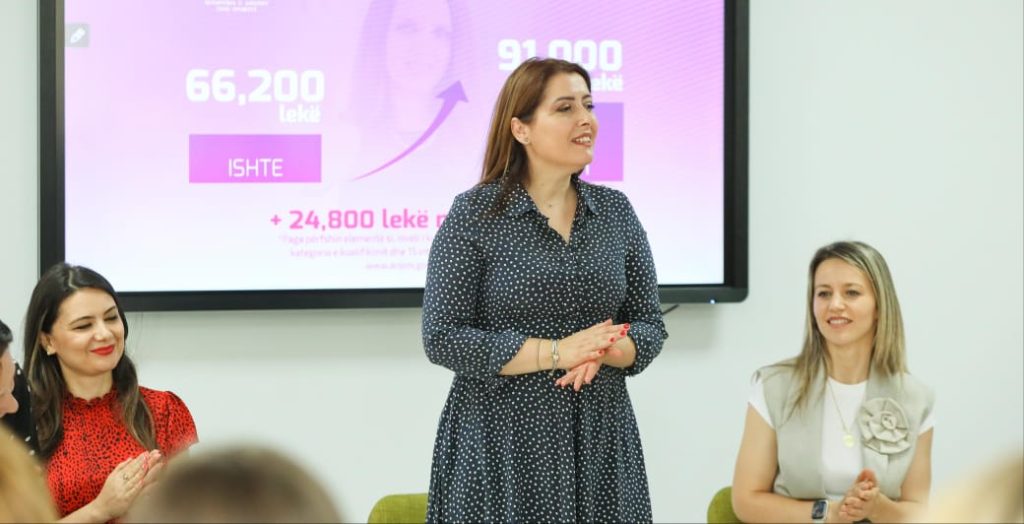National Social Protection Strategy 2024-2030
The vision for the National Social Protection Strategy 2024-2030, approved by the Ministry of Health and Social Protection, provides social protection to every citizen in need and guarantees a dignified life throughout the life cycle in an enabling and empowering environment.
The presentation of this strategic document was attended by Permanent Coordinator of the UN in Albania, Fiona Mccluney, Ambassador of Switzerland, Ruth Huber, Ambassador of the EU in Tirana, Silvio Gonzato, representative of the World Bank in Albania, Emanuel Salinas as and Murat Sahin, representative of UNICEF in our country.
Albana Koçiu, Minister of Health and Social Protection, emphasized that with this fundamental document for the future of social protection, we are laying a new foundation for the vision of a country where development benefits everyone.
Minister Koçiu explained that the Strategy will serve as a guide to coordinate inter-institutional efforts in social protection, aiming to leave nobody behind. “Our ambition is to create conditions where everyone is an equal citizen from the very beginning, regardless of gender, region, political beliefs, economic and social status, sexual orientation, etc.,” the Minister said.
According to her, this document will serve to alleviate poverty and further the social, economic and political empowerment of women. “The new National Social Protection Strategy 2024-2030 is ambitious and at the same time brings several innovations that will contribute to our shared vision of comprehensive social protection. These include integrated payment models and social care services across the life cycle. The provision of this model will aim to strengthen the family labor market and care for children,” emphasized the Minister of Health and Social Protection.
Responsible social protection for children is another vision of the strategic document.
In this regard, Minister Koçiu emphasized that “our aim is to build a model of access and integrated provision of services according to the European Child Guarantee model. At the same time, the models of care for children, especially for children with different abilities, will aim at family services, support for parents and the transformation of residential centers into alternative models of care”.
The strategy also aims to consolidate a comprehensive reform of disability assessment.
Minister Koçiu stated that the Social Fund will serve as a solid instrument to expand or establish new territorial services for the rehabilitation of children, even in deep rural areas.
Professionalizing the workforce through quality service standards, accreditation and licensing is aimed at enabling professionals to continuously improve the services they provide.
The Minister added that they are going to create a model of professional development and continuing education to attract the right professionals and to guarantee a perspective to grow. According to her, providing services by professionals in all Municipal and Territorial Services creates a standard of quality and maximum care for each beneficiary. “Undoubtedly, it isn’t all roses even in Europe, much less in Albania. But an Albania that is social, solidarity and that belongs to all, is now possible more than ever”, concluded the Minister of Health and Social Protection, Albana Koçiu.
The strategy rests on two strategic pillars: First, to alleviate poverty for all those in need and to improve the lives of persons with disabilities through support for appropriate, gender-responsive, transparent, risk-sensitive financial schemes and benefits in times of crisis. Second, to expand integrated, accessible, quality and gender-responsive social services and promote deinstitutionalization in partnership with local government and other actors.
The new Strategy is based on the priorities set out in the National Strategy for Development and Integration II -2030 and is aligned with the European Pillar of Social Rights, the European Charter of Human Rights and the UN Sustainable Development Goals. The Strategy has been developed through an open consultation process and with the broad participation of the strategic partners, the line institutions, the civil society and the implementing agencies. Special attention has been paid to the consultation of young people in order to promote their involvement in the issues that concern them, as well as in the promotion of the Strategy and its priorities.



